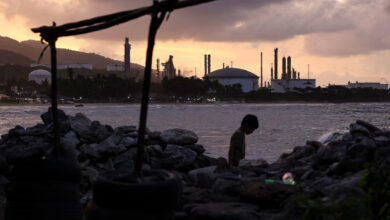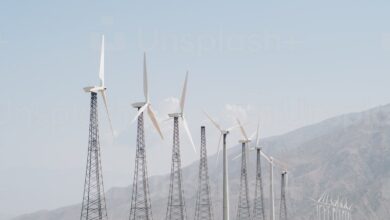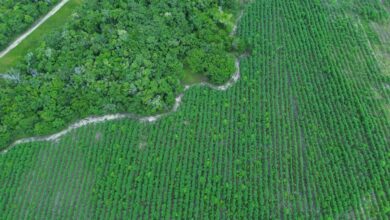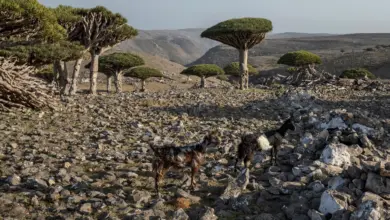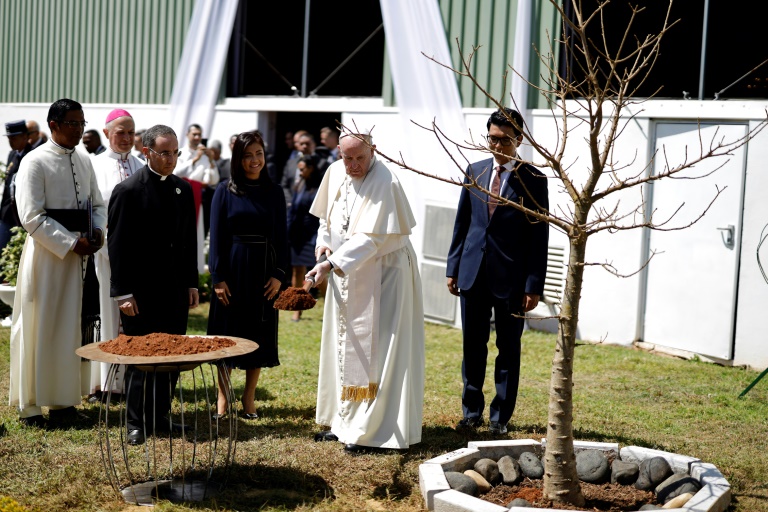
Pope Francis on Saturday made an impassioned plea to Madagascans to protect the Indian Ocean’s unique environment from “excessive deforestation”, on the second leg of his African tour.
Weeks after a spike of fires in the Amazon, the Argentine pontiff told his hosts they should “create jobs and money-making activities which respect the environment and help people escape poverty”.
Madagascar — famed for its immense diversity of flora and fauna — is home to 25 million people, the vast majority of whom live in poverty on an income of less than two dollars a day.
More than half of its young people are out of work, even if many boast good qualifications.
The pope said there “were many causes driving excessive deforestation which benefits just a few people… and compromises the future of the country.”
The authorities should also ensure social justice, he added.
‘Alarm raised’
Madagascar’s British ambassador Philip Boyle told AFP the country loses around 200,000 hectares of forest each year, adding that “most of the tropical rainforest could disappear by 2040”.
he country’s economy is largely dependent on agriculture, the export of vanilla and cocoa in particular.
“The alarm has been raised by the pope and we are ready to take on the challenge,” environment minister Alexandre Georget told AFP.
He said Madagascar would do more to prevent forest fires, and use tree-planting drones and aerial seed bombing techniques to restore its forests.
“In six months we reached an objective of planting 40,000 hectares of land (98,000 acres), but this is pointless when there are forest fires” said Georget, adding that laws would be enforced and farmers made more aware of the issue.
Liberal-leaning president Andry Rajoelina was elected to a second term last year mainly on promises of jobs and housing.
“Corruption and inequality outrage us,” said Archbishop Desire Tsarahazana, addressing the pope in his welcome speech.
Hope for the young
At Antananarivo’s Soamandrakizay stadium, thousands of young people – mainly scouts – gathered for a vigil. They waited for hours in the heat.
“I am here to ask for the pope’s blessing to face the harsh realities of life, insecurity, poverty and corruption,” said 17-year old student Njara Raherimana, who travelled hundreds of kilometres for the event.
“All this gives me hope for change in my country,” echoed fellow student, Antony Christian Tovonalintsoa, who lives in the outskirts of the capital.
During the vigil, Pope Francis lauded the “joy and enthusiasm” of the singing crowd.
He encouraged the youth not to fall into “bitterness” or to lose hope, even when they lacked the “necessary minimum” to get by and when “educational opportunities were insufficient”
800,000 faithful expected
Sunday will mark the high point of Francis’ visit with a huge mass in the capital expected to be attended by some 800,000 faithful.
Many had already started setting up tents on the outskirts of the city on Friday, armed with posters of the Argentine pontiff.
Prospere Ralitason, a 70-year-old farm worker, arrived with some 5,000 fellow pilgrims from the central eastern town of Ambatondrazaka, 200 kilometres (125 miles) away.
“We are tired, but it’s worth making all these sacrifices to see the pope with our own eyes and receive his blessing,” he told AFP,
John Paul II
The last pope to visit was John Paul II 30 years ago.
“I was a lieutenant when I helped with the security of John Paul II in 1989. Today I am a divisional general and overseeing security for Francis’ visit to Madagascar,” said Samuel Rakotomalala.
Some 700 police officers will be deployed at the site, which is also equipped with 200 surveillance cameras and the 12,000 young scouts will also help out.
In June, 16 people were killed and dozens hurt in a stampede outside a sports stadium in the capital during a free concert.
Francis visited Mozambique earlier in the week. He is also due to travel to the island of Mauritius, which like Madagascar is situated off the eastern coast of Africa.
Image: AFP / MARCO LONGARI Pope Francis planted a baobab tree with Madagascar President Andry Rajoelina at the presidential palace in Antananarivo

